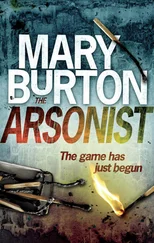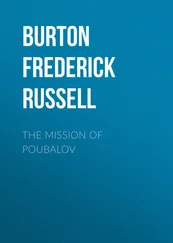‘In my mind, it stands for duplicity,’ Isaac replied. ‘Because we are surrounded by lies.’
Olive continued to paint Rufina and the Lion throughout the rest of June and into July. Harold’s telephone began to ring again in his study, every two or three days, and he would close the door on them in order to answer it, his voice hushed and incomprehensible. When he’d been in Paris, he said, the news from Vienna had not been good. Businesses were closing, crimes going unpunished; but not even smashed shop windows were as frightening as the political rhetoric being hurled from one side to the other. Jews were coming in from Germany for shelter, but he wondered how long their luck would last.
He told his family that he would focus on the Paris gallery, trying to work out the logistics of getting his artworks out of Vienna before the business suffered. Peggy Guggenheim was going to open her gallery in London, and he was hoping he might be able to transfer some of his stock to her there. In Vienna, he told them, Jewish friends were selling their art for knock-down prices to raise capital to pay for train fares, lodgings, food, new lives beyond the borders of Austria. People who had prided themselves on varied, intelligent and abundant collections of old masters and new were forced to accept prices they would have baulked at twelve months earlier.
Harold was unsurprisingly gloomy, only perking up when there was talk of the next work by Isaac Robles. Isaac Robles had become his raison d’être, two fingers to the nationalistic narrowness peddled in every paper; his colourful child, his man with a vision, his delight and defiance. ‘Paint, Isa,’ he said one night, drunk. ‘God knows we need you to paint.’
It was odd to think such tempests were happening all around Europe, for Arazuelo seemed relatively peaceful. Sarah continued with her walks out; by now there was a mountain of artichokes in the kitchen. They would never be able to consume them against the pace that Sarah was coming home with them, and Teresa regarded them with a sense of foreboding. She noticed how freckles had appeared over the bridge of Sarah’s nose, from the punishing July sunshine; she had lost some of her brittle elegance, and seemed somewhat more grounded in her surroundings. At night, Teresa could hear the Packard’s engine as Harold trundled it down the slope and through the gates towards Malaga. Sarah seemed serene about Harold’s leave-taking. She slept in, and complained of headaches, rising late enough for her husband to have made his way back home in the dawn, as if he’d never left.
Olive no longer commented on her father’s disappearing acts. Teresa wondered whether she was using it as a spur, duping her father as he was duping her. Perhaps Olive’s pursuit was not one of success, but of an enemy’s humiliation. Teresa wasn’t exactly sure. Olive simply seemed most herself when painting, day and night, to finish Rufina and the Lion .
July was a good month in Arazuelo. The smell of sage fields and rosemary, lizards making their way like small secrets out of the walls, jerky and neurotic in motion, ever wary of predators in the sky. But when they stilled themselves to bask, how poised they were, such pragmatists of nature, soaking up the heat of the sun.
It was a time of long evening shadows, the raw rasp of crickets filling the hot night. The fields were now shades of parsley, lime and apple. Wildflowers; spattered reds and royal purples, canary-yellow petals moving in the breeze. And when the wind got up, salt tasted on the air. No sound of the sea — but listen, and you could hear the articulated joints of a beetle, trundling through the corn root.
From the hills came the dull music of bells as the goats overtook these smaller sounds descending the scree through the gauze of heat. Bees, drowsing on the fat flower heads, farmers’ voices calling, birdsong arpeggios spritzing from trees. A summer’s day will make so many sounds, when you yourself remain completely silent.
*
They didn’t see it coming. Of course they didn’t. Who wants to look for trouble, every single day? You turn away, as long as you can. Even the government didn’t see it coming. Perhaps later, when the locals recalled how no one had ever been brought to justice over Adrián the factory boy, or when they considered those red ribbons tied on trees, or the shot statue of the Madonna, they would turn to each other, and say, Ah yes; the writing was on the wall .
The Schlosses were too wrapped up in their own internal battles to realize what was going on north in Madrid, what was going to surge up towards them from Morocco. They were not paying attention when on the twelfth of July in Madrid four Falangists shot dead the socialist lieutenant of the Republican Assault Guard. In retaliation, his friends assassinated the country’s monarchist deputy, a prominent right-winger. Life in Spain, and life in the finca, was on the cusp of being broken apart, letting in a flood of recriminations, ambitions and long-buried resentments. But at the same time, in those early days, it didn’t seem that war was on its way at all.
Sarah and Olive heard it on the radio first. On the eighteenth of July, four generals, out of the eighteen that ran the national army, rebelled against their left-wing government and took over their garrisons. The Prime Minister, frightened of revolution and mass unrest, ordered all civil governors not to distribute arms to the workers’ organizations, who would inevitably want to resist potential armed rule. He then resigned that night.
Isaac came racing up to the finca. Harold was out — in Malaga, of course. ‘Get the pistol,’ he was calling, and on hearing him, women spilled out of the house.
Later, Teresa would think about the Schloss women’s conflicting expressions. Olive looked relieved. Perhaps she believed that Isaac still cared about her — so much so that he had run all the way because some soldiers were throwing their weight around. Teresa remembered Sarah’s smile of pleasure, her steady hand as she poured him a glass of water.
Seville was the nearest city to Arazuelo to fall to the army rebels. Its conquering general was a man called Queipo de Llano, who used the radio at ten o’clock that night to broadcast his intentions. Isaac and the three women sat listening in Harold’s study, the fear they felt mirrored in each other’s faces as Queipo de Llano’s haranguing crackled through the speaker:
‘ People of Seville: to arms! ’ he bellowed. ‘ The Fatherland is in danger and in order to save it a few men of courage, a few generals, have assumed the responsibility of placing ourselves at the forefront of a Movement of National Salvation that is triumphing everywhere. The Army of Africa hastens to cross to Spain to join in the task of crushing that unworthy Government that had taken upon itself to destroy Spain in order to convert it into a colony of Moscow .’
‘A colony of Moscow?’ said Sarah. ‘What the hell is he talking about?’
‘Shut up!’ hissed Olive.
‘ All the troops of Andalusia, with whom I have communicated by telephone, obey my orders and are now in the streets. . all the authorities of Seville, and all who sympathize with them and with the so-called Government in Madrid, are under arrest and at my disposal .’
‘Isaac,’ Olive whispered. ‘He’s talking about you. Isaac, you have to run.’
He looked up at her, and she saw the hollows under his eyes. ‘Run? I am not going to run,’ he said. ‘You think I am going to hide from a man like him? You think because Queipo de Llano has telephoned some people, they will do as he says? We have already mobilized. We will fight back. They did not succeed in Madrid or Barcelona, and they will not succeed here.’
Читать дальше












